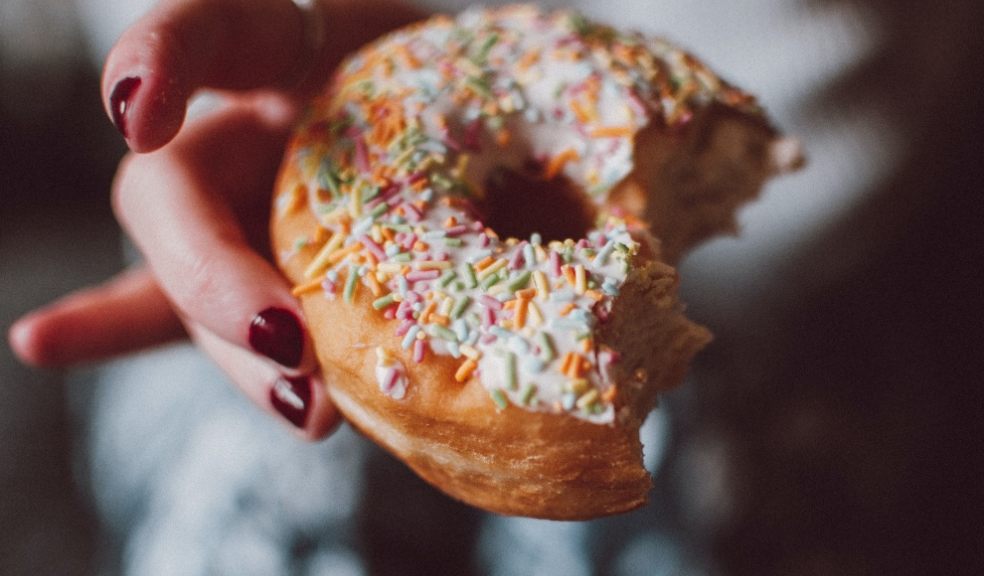
What do your snacking habits say about you?
World-renowned therapist Marisa Peer reveals 8 types of eaters and unlocks the key to breaking bad habits
- She shares secrets of her 30 year career working on weight management with clients to help everyone
- Unique approach helps people discover root cause of overeating to help them live a more confident, diet-free lifestyle
- Dietless Life develops positive mental wellbeing and healthy relationship with food
Having helped hundreds of clients whose lives have been dominated by soul-destroying diets and gruelling exercise routines in an attempt to curb overeating and reach and maintain their optimal weight, Marisa Peer has now shared her unique approach to weight management in her brand new programme.
Dietless Life combines the techniques she has developed over her thirty-year career including the use of hypnosis to increase resting metabolic rate.
One of the first things Marisa does with her clients is to get them to identify the type of eater that they are as this helps to provide a steer on the root cause of their issues with food and makes them aware of the triggers when it comes to eating habits.
The 8 Types of Eater[1]
Addictive EaterEat quickly and on the go, trapped in a cycle of empty calorie eating with a diet fuelled by sugary foods, caffeine, fast food, fizzy drinks, white bread, pasta and rice.
Angry Eater
Eat when they feel stressed, tense or to push down feelings, often turning to crunchy foods like crisps, apples, crusty bread which they can chew and chomp on to relieve tension because stress receptors in the jaw release relaxing feelings when chewing, producing an instant mood-lifter.
Constant Cravers
Seem hungry more than other people with a ‘need’ for food, so find themselves in a cycle of endless eating. Will often focus on treating themselves with cake, biscuits, pizza and crisps.
Destructive Eaters
Feel the need to stop themselves having a slim attractive body, eat big portions, frequent meals and unhealthy snacks such as cakes, biscuits and crisps., They like the power of being able to gorge on them, knowing it’s their choice.
Emotional Eaters
Uses comfort foods, sugary snacks and carbohydrates such as biscuits, fizzy drinks and bread to self-medicate, even when they’re not hungry - often bingeing on them in secret to suppress feelings such as boredom, anxiety and loneliness.
Feasters
Use food as a way to celebrate at any opportunity. Need more of everything - more textures, tastes, sides with every meal. As they add so much variety, the body’s natural instinct to stop eating isn’t triggered, so they don’t feel full and know when to stop.
Habitual Eaters
Will eat at any opportunity and finish everything in front of them, often at speed. Find comfort in routine, turning to the same convenience foods and snacks such as cereal bars and biscuits out of habit, whether they are hungry or not.
Ignorant
Misinformed about what constitutes healthy eating, they see carbs such as pasta, bread and cereals as fine, but anything with a high fat content as the enemy. May eat a lot of convenience foods/ready meals/diet foods and drinks believing that low-fat or sugar-free mean they are better for you.
Commenting on Dietless Life, Marisa Peer said:
‘Most diets do not address the root cause of why people overeat or binge on sugar. This means that even if they reach their desired weight, they still have an unhealthy relationship with food. Not only do they often put the weight back on as soon as the diet is over but many of them end up heavier than when they started.
'Dietless Life pinpoints where in someone’s life they developed an issue with food. It’s usually something people have held onto since their childhood or adolescence but can be at any stage in their life involving a trauma. Once someone has dealt with this, they don’t have to stick to any future eating regimes as this approach will stick to them.’
Over 12 weeks, Marisa is hosting a live, weekly workshop and bespoke group hypnosis session giving people a complete understanding of their personal overeating ‘whys’ and ‘hows’.
The program offers a range of additional benefits that are all based on Marisa’s methods and client successes over the years including:
- A new, unique hypnotic audio to download each week
- A different weekly hypnosis session with Marisa every week
- Strategies to change your relationship with food forever
- Techniques to increase your Resting Metabolic Rate, improve your digestion and change your food preferences
- Therapy demonstrations and motivational lessons including the number 1 reason diets fail
- Strategies to end stress eating
- Exclusive access to Marisa’s new book, Dietless Life
- Personal development workbook including client tried-and-tested tactics and strategies
- An accountability buddy allowing partners to mentor and support one another throughout the 12 weeks
Anyone interested in joining can visit https://www.facebook.com/groups/dietlesslife to find out more and whilst the first live session with Marisa was held on May 12th, there are 10 more to go and the initial ones are available as a recording.













